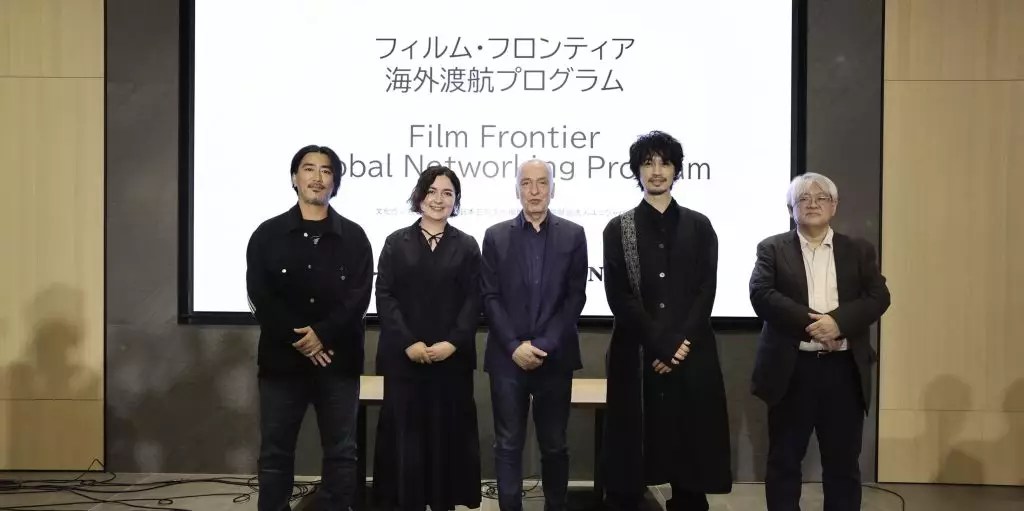In a significant move aimed at bolstering Japanese cinema on the global stage, the Agency for Cultural Affairs of Japan has unveiled the first cohort of filmmakers selected for its innovative Film Frontier Global Networking Program. This initiative was announced during the esteemed Tokyo International Film Festival (TIFF) and seeks to furnish emerging filmmakers with essential skills in project presentation, along with creating avenues for valuable international connections. The program, orchestrated by UniJapan, the organization that also manages the TIFF, signifies a new chapter in Japan’s commitment to nurturing its cinematic talents.
The Film Frontier Global Networking Program is designed as a comprehensive 18-month initiative, running from December 1, 2023, to May 31, 2026. Its primary goal is to enhance the presentation skills of filmmakers while expanding their international visibility and networking opportunities. The inaugural cohort focuses predominantly on live-action filmmakers, but in future iterations, there are plans to include professionals working in animated film production. This distinction not only underscores the diversity within the Japanese film industry but also affirms the program’s adaptability to cater to multiple genres.
Selected to be part of this prestigious program are four talented filmmakers: Shingo Ota, Emma Kawawada, Kohki Hasei, and Mai Nakanishi, each recognized for their promising projects. To ensure that the program champions the next wave of Japanese cinematic voices, applicants must be Japanese nationals or permanent residents, with a cap of three feature films under their belts as directors, producers, or screenwriters. This criterion not only emphasizes youth but also helps maintain a focus on innovation and fresh insights within the industry.
The support from government officials and industry experts reflects a collective recognition of the need for such initiatives in Japan. Hirohiko Nakahar, a key figure from the Cabinet Secretariat, expressed the government’s commitment to fostering the ambitions of the young creatives who are poised to shape the future of Japanese cinema. Comments from Shozo Ichiyama, TIFF’s Programming Director, highlight the festival’s evolving mission to cultivate new filmmaking talent. Ichiyama’s insights reveal an intentional shift in TIFF’s programming strategy, emphasizing ambition balanced by realistic project execution.
The importance of networking is a central theme echoed by Christian Jeune, the head of Cannes’ film department, who shared valuable insights about the significance of creative spaces like the Cannes “Residence” program. Jeune argues that unstructured environments where filmmakers are encouraged to engage freely with their peers can exponentially enhance their artistic and professional growth. His perspective aligns with the foundational philosophy of the Film Frontier program, which aspires to create an atmosphere of mutual support and shared experience among participants.
Despite the rich educational frameworks provided by art colleges and universities in Japan, actor and director Takumi Saitoh’s remarks point to a gap in continued support for filmmakers throughout the filmmaking process. He advocates for the establishment of infrastructure that would bolster not just individual projects but the entire filmmaking journey. His call for enhanced frameworks for filmmakers, particularly in terms of residency-like opportunities, signifies a greater need for systemic support within Japan’s creative ecosystem.
Saitoh’s firsthand experience at the Cannes Film Festival further reinforces the necessity for Japanese filmmakers to engage with the international community. His reflections on the rich, collaborative atmosphere at such festivals illuminate the potential benefits of firsthand exchanges, thus underscoring the important role that platforms like the Film Frontier Global Networking Program can play in this regard.
Ultimately, the Film Frontier Global Networking Program serves as a promising platform that could redefine the landscape of Japanese cinema, facilitating the growth of talent and fostering international collaborations. As these initial filmmakers embark on their journeys, the hope lies not only in personal successes but in the larger narrative of Japan’s cinematic evolution. With government backing and industry support, the future appears bright for those ambitious filmmakers determined to make their mark on the world stage.


Leave a Reply